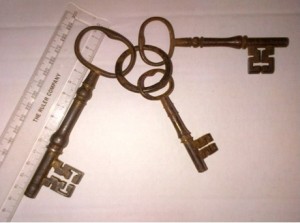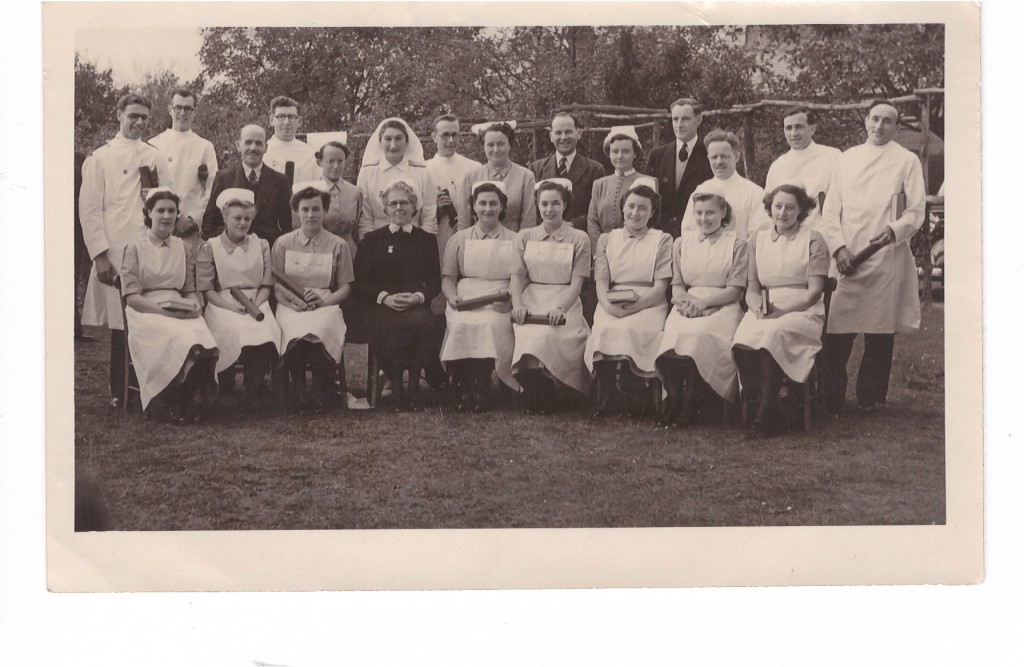
Richard Baker from the BBC visited St Luke’s Hospital to open one of the wards – but which one? Can you help to date this photo?
“I have something a bit special for your collection” he said, keeping his hand in his left coat pocket. “Can you guess what it is?”

This is a bunch of old keys with a story. The two smaller keys had been saved by a carpenter at the hospital who worked in what is now the education room, in the 1970’s. He kept them because they were just lying around and would doubtless have ended up in the skip.
The large key was saved from being thrown away in the late fifties. The gentleman who saved it is now 90 years old and passed the key on after a chance conversation in the pub about the St Luke’s Hospital Heritage project.
He noticed the key because it is a lovely thing. (He also reportedly said that he would have taken the lock it was in as well, if he’d had the right screwdriver with him!) The key and lock were in one of the doors in the cell block of the Spike.
The keys have now been returned to the Spike Heritage Centre and have since been dated to pre-1840s! Could they be the original workhouse keys?
(J Thomson)
Don’t forget to visit the ‘Workhouse – Segregated Lives‘ exhibition at the Florence Nightingale Museum! They are showcasing some items from the Spike Heritage Centre, Guildford including the stone breaking goggles as featured in the Guardian!
Dates: 28th February – 5th July 2013
Key dates:
Thursday 14th March – Dissecting the Workhouse Dead
Historian Ruth Richardson will explain the terrible fear of the pauper funeral, its historical roots, and its long shadow into our own times.
Thursday 24th April – Contagion in the Workhouse
Historian Andrea Tanner examines how workhouses cared for the unfortunate victims of infectious diseases that raged through the streets of Victorian London.
Thursday 9th May – ‘Down and Out’: The Lives of Tramps and Vagrants (1750 – 1950)
Simon Fowler will look at the experiences of vagrants and the attempts to help or hinder them in the bleak casual wards of the workhouses.
Can you help us to identify the nurses on this photo taken in October 1950 at St Luke’s Hospital.

We know a few names but not everyone, so if you do recognise a face please let us know by commenting below!
Thanks in advance!